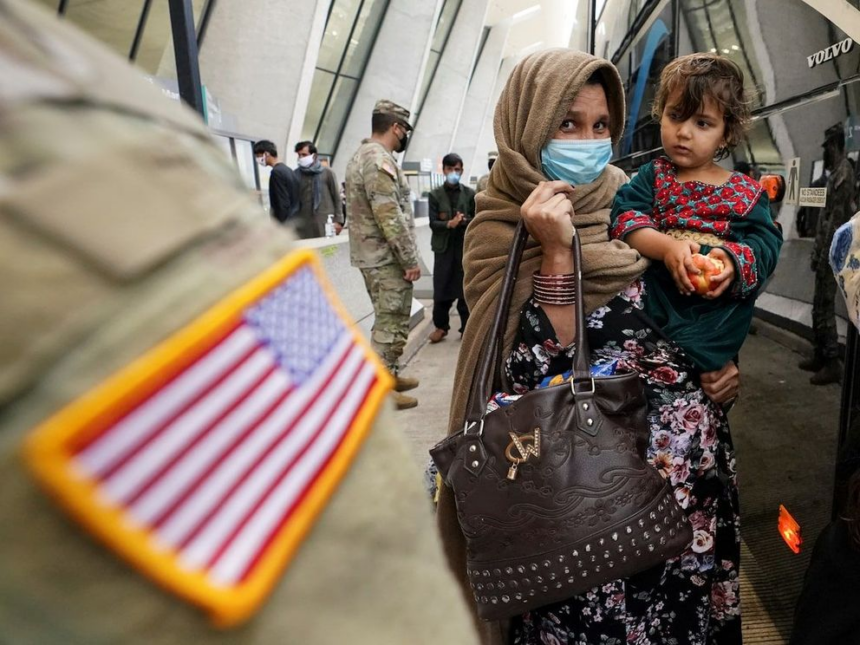RASC News Agency: The George W. Bush Institute has issued a forceful condemnation of President Donald Trump’s decision to terminate Temporary Protected Status (TPS) for thousands of Afghanistani nationals, calling instead for a path to permanent residency. In a stark warning, the Institute emphasized that forcibly returning these individuals to Afghanistan would expose them to extreme peril amid escalating instability and targeted persecution. In a statement released on Friday, April 25, the Institute expressed profound alarm over the deteriorating security landscape in Afghanistan, declaring:
“Afghanistan remains profoundly unsafe, yet the United States now faces the dangerous prospect of forcibly returning some of its most loyal partners individuals who face imminent threats precisely because of their service to American interests.”
The statement underscored that TPS, by design, offers only temporary reprieve it does not confer a durable legal status. It merely permits eligible individuals to reside, work, and travel within the United States until conditions in their home country improve. Yet, the Institute asserted, Afghanistan’s trajectory remains one of acute insecurity, widespread repression, and deepening humanitarian crisis, rendering safe return implausible for the foreseeable future. Natalie Gonnella-Platts and Lara Collins, the primary authors of the statement, issued a stark warning:
“To terminate protections now would not only constitute a profound betrayal of vulnerable Afghanistanis, but would also represent a disturbing normalization of Taliban-sanctioned violence, systematic persecution, and gender-based apartheid.”
The authors urged the U.S. government to establish durable pathways toward permanent residency for Afghanistani migrants and to reconsider policies that risk precipitating their involuntary repatriation into perilous conditions. Moreover, the Bush Institute stressed that the expiration of TPS is but one facet of the larger crisis facing Afghanistanis displaced by the Taliban’s resurgence. Processing and resettlement efforts for Afghanistani refugees have slowed to a near standstill, and programs such as “Enduring Welcome,” once vital to resettlement operations, now face the risk of suspension or termination. The Institute’s report further noted that humanitarian parole, granted to Afghanistanis evacuated during the chaotic withdrawal of August 2021, is set to expire by December unless decisive action is taken by Congress. Similarly, the Special Immigrant Visa (SIV) program a lifeline for those who risked their lives alongside U.S. forces faces expiration absent legislative renewal.
The statement identified former officials of the previous Afghanistani government, military veterans, journalists, educators, civil society leaders, and human rights defenders as high-priority at-risk groups. Particularly alarming, it noted, is the plight of Afghanistani women activists who, it documented, have been subjected to horrific forms of sexual violence, including gang rape, as part of systematic efforts to suppress dissent. Turning to broader conditions inside Afghanistan, the statement delivered a searing critique:
“Despite the Taliban’s relentless propaganda, fabricated narratives, and systematic deceit, the quality of life for the vast majority of Afghanistani citizens has dramatically worsened. In addition to widespread human rights atrocities and escalating terrorist threats, severe poverty, crippling food insecurity, and lack of access to potable water have compounded an already dire humanitarian catastrophe.”
The Institute cited alarming increases in maternal and infant mortality rates, restrictions on critical vaccination campaigns, and soaring malnutrition levels as further evidence of the regime’s catastrophic governance. It highlighted the contributions of Afghanistani women living in the United States, who not only raise their families in safety but also actively enrich and strengthen the American economy. In its concluding recommendations, the Bush Institute called upon the U.S. government to prioritize the accountability of the Taliban regime. It proposed a multi-pronged strategy, including the expansion of targeted sanctions and the application of measures such as Section 311 of the USA PATRIOT Act, which empowers U.S. authorities to impose financial and economic penalties on entities conducting business with terrorist organizations. By leveraging such mechanisms, the Institute argued, Washington could impose tangible costs on companies and financial institutions complicit in propping up Taliban rule.
“Afghanistan’s future and America’s moral credibility are both at stake,” the Institute concluded, urging immediate action to protect vulnerable Afghanistanis and to confront the Taliban’s systematic assault on human rights, democracy, and dignity.






